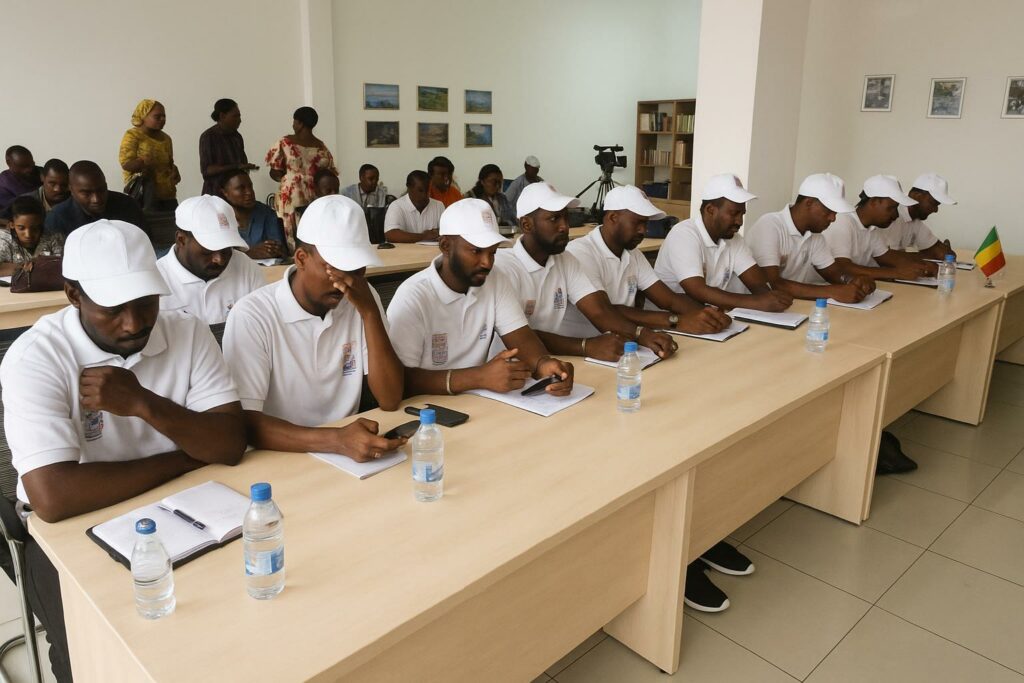A discreet arrival with ambitious scope
The morning of 21 October saw fifty young Congolese, clipboards in hand, fan out from Brazzaville’s waterfront taxi ranks to remote districts of Sangha and Niari. Their employer, the Russian non-governmental organisation Globus, prefers to let results speak before grand announcements, but the scale of this first nationwide survey has already drawn the attention of municipal chiefs and local media. According to the project coordinator, Koud Etokabeka, the mission is straightforward yet demanding: “capture the real, lived priorities of households so that every future intervention is anchored in verified data.”
Globus’ presence in Central Africa has grown steadily since 2021, with low-profile cultural and humanitarian programmes in Pointe-Noire and Owando. Yet this is the first time its teams have attempted a systematic mapping of expectations from north to south of the Republic of Congo, a republic whose 342 000 km² still conceal striking disparities between districts only a few hundred kilometres apart.
Training a cohort of community listeners
Before taking the road, each surveyor completed a five-day workshop in Brazzaville conducted by senior sociologist Olga Ustinova. Role-plays alternated with methodological briefs on representative sampling, non-leading questioning and the ethics of data storage, ensuring that enumerators can combine statistical rigour with cultural sensitivity. Fourteen investigators remain stationed in the capital; the other thirty-six operate in departments as diverse as Kouilou’s oil corridor and the agrarian valleys of Plateaux.
Ms Ustinova underlined that the questionnaire embraces a wide spectrum of issues, from access to potable water to aspirations for digital literacy, classifying responses by age, gender and locality so that patterns emerge without prejudgement. This insistence on qualitative depth, she argued, protects the survey from the pitfalls of purely quantitative polling that often overlooks nuance in multilingual communities.
Dialogue rather than diagnosis
For Globus, the survey is not an opinion barometer but a conversation starter. Founder Yulia Berg, speaking from the organisation’s Moscow office during a streamed briefing echoed by several Congolese outlets, reminded observers that “development thrives where inhabitants define their horizon and external partners simply provide levers.” The NGO therefore pledges to publish an executive summary of findings and to discuss preliminary trends with departmental prefectures, a gesture aligned with Brazzaville’s emphasis on participatory governance in its National Development Plan 2022-2026.
Government officials contacted by our newsroom welcomed the effort, noting that the Ministry of Social Affairs already cooperates with academic partners on similar audits. While no formal partnership agreement has been announced, Etokabeka confirmed that anonymised data sets will be shared with relevant ministries once cross-checked for accuracy.
Socio-economic stakes behind the clipboard
Field testimonies collected on the first two days suggest that respondents rank electricity reliability, youth employment and maintenance of rural roads as top concerns. Although these impressions remain anecdotal until consolidated, they resonate with indicators published by the National Institute of Statistics in its 2023 household survey, which highlighted identical priorities. For economists, aligning external funding with such empirically established demands could improve absorption rates of development aid and reduce project redundancy.
Observers also point to Globus’ decision to hire only Congolese enumerators as a relevant signal. By remunerating and empowering local graduates, the NGO injects modest but tangible income into neighbourhood economies while building a home-grown pool of research skills.
The legal and economic lens
From a legal standpoint, the survey operates within the framework of Law 33-2022 on the protection of personal data. Globus representatives affirm that all questionnaires are coded and stored on servers located in the Republic of Congo, with consent forms translated into Lingala and Kituba to ensure informed participation. Such compliance not only shields the organisation from potential litigation but also strengthens public trust, a prerequisite for meaningful community engagement.
Economically, the initiative mirrors the trend of diversified partnerships sought by Brazzaville to complement traditional multilateral channels. Should the survey confirm demand for micro-infrastructure—water kiosks, solar hubs, or training centres—Globus would finance pilot projects through a blend of private donations and thematic grants. The model could, if successful, free public resources for macro-level investments while demonstrating the catalytic role of targeted social ventures.
At a glance: key takeaways for decision-makers
The project’s measured approach—listen first, build later—echoes contemporary best practices in sustainable development. It offers Congolese authorities an additional layer of granular data and provides local communities with a rare occasion to articulate priorities outside electoral cycles. Moreover, by situating the exercise within a transparent, law-abiding framework, Globus contributes to a governance ecosystem where civil initiative complements public policy rather than competing with it.
As the enumerators continue their kilometres of interviews, a discreet yet consequential experiment unfolds: can an external actor translate grassroots voices into actionable, culturally consonant projects without diluting local ownership? The answer, anticipated in a forthcoming analytical report, will interest not only donors and planners but every Congolese citizen invested in the country’s inclusive growth trajectory.

